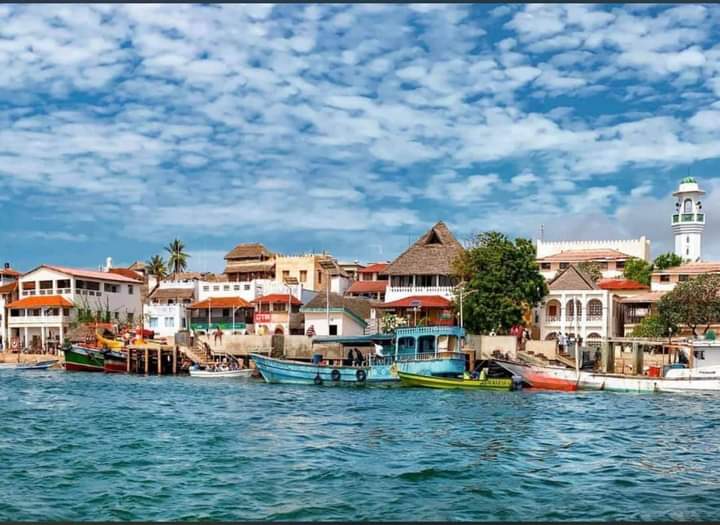
Experience the Maulim Festival in Lamu, Kenya—a vibrant five-day celebration where traditional dhow races, soulful taarab music, and sacred ceremonies bring the Swahili coast to life. This festival offers visitors a hands-on cultural adventure wrapped in the island’s unique coastal spirit and historic charm.
Wear Sturdy Footwear
Cobblestone streets and sandy paths vary with moisture from recent rains; durable shoes with good grip prevent slips and foot fatigue.
Stay Hydrated
Kenya’s coast can be deceptively hot during festival days, so carry a refillable water bottle to avoid dehydration during long event schedules.
Plan Around Festival Events
Key activities like dhow races follow tidal and weather patterns—check local schedules to catch peak moments and avoid overcrowding.
Respect Local Customs
Maulim is deeply spiritual: approach ceremonies and gatherings with respect, asking permission before photographing and dress conservatively.
Maulim Festival in Lamu: A Vibrant Journey Through Swahili Spirituality and Sea-Borne Traditions
Lamu Island, off Kenya’s northern coast, pulses with life and history during the annual Maulim Festival—a five-day celebration that ignites its narrow streets and shores each November. Unlike many traditional festivities that focus on pageantry alone, Maulim offers travelers a chance to experience the living soul of Lamu’s Swahili culture through lively dhows racing the ocean breeze, pulsating taarab music, and open-air feasts echoing centuries-old customs.
For adventure travelers, Maulim is more than a festival; it’s an invitation to step into an environment fiercely connected to the rhythms of sea and spirit. The island’s sandy alleys, usually quiet and reflective, buzz with energy as locals and visitors alike gather to watch dhow races—traditional wooden sailboats that harness the Indian Ocean’s unpredictable gusts with skill and resilience. These races run along Lamu’s shoreline, where the sea dares you to trust its push and pull.
The event is anchored by spiritual ceremonies and communal gatherings. The Maulim is not only about celebration; it’s about respect for the sacred and an appreciation of the island’s layered history. Streets fill with the scent of spiced dishes, and the call of Arabic chants intertwines with the wind, making the atmosphere vivid but grounded. It’s a festival that demands your attention, pacing you through moments of high-energy dancing and quieter interludes of reflection.
For practical visitors, timing your arrival is key. The festival typically happens in late October to early November, coinciding with the end of the long rains. The transition means trails and pathways can be damp but still walkable, and the ocean’s temperament shifts, lending intensity to the dhow races. Light, breathable clothing is essential, along with sturdy sandals or walking shoes to manage uneven cobblestones and sandy streets without fuss.
Exploring Lamu during Maulim offers more than the main festival events. The island’s compact size means you can easily combine cultural immersion with exploration—visit the Lamu Fort, stroll the old town’s labyrinthine streets, or catch the sunrise from Shela village with the breeze nudging you forward into the day.
Hydration is a must; the tropical heat can catch even seasoned travelers off guard. Carry a refillable water bottle and pace yourself between events, as the festival’s lively schedule can unexpectedly sweep you along like the ocean’s currents. Early mornings and late afternoons offer the best window for photography and less crowded moments to take in the natural surroundings.
Maulim Festival embodies the island’s spirit—wild, deeply rooted, and fiercely itself. It's a reminder that adventure travel isn't just about reaching peaks or crossing distances, but about engaging with culture, nature, and history on terrain that demands respect, invites curiosity, and offers profound satisfaction.
Nearby Trips
All Adventures
Boat Charters
Water Activities
Adventures near Lamu, Kenya
Discover the unique and memorable adventures that make Lamu, Kenya special.
Frequently Asked Questions
What is the origin of Maulim Festival?
The Maulim Festival has deep roots in Swahili spiritual traditions, marking the end of the harvest and expressing gratitude through dhikr (remembrance) ceremonies, community prayers, and dhow races, blending Islamic and coastal maritime culture.
Are non-Muslims welcome to participate?
Yes, visitors are welcome to observe and respectfully engage in many open events like the races and markets; however, some religious ceremonies are private and should be approached with cultural sensitivity.
Is Lamu Island accessible during the festival?
Lamu is accessible by ferry or small aircraft, but book transport and accommodation well in advance because the festival draws many visitors and local guests.
What wildlife can I expect to see during the festival?
Alongside ocean views, watch for coastal birds like the greater flamingo and kingfishers. At dawn or dusk, the local mangroves and beaches sometimes reveal monitor lizards or crab spider activity.
How physically demanding is attending the Maulim Festival?
Most festival activities involve light walking in town and along shorelines. The terrain is manageable but uneven, so comfortable footwear is a must; no hiking skills are required.
Are there any environmental considerations for visitors?
Lamu’s delicate marine and mangrove ecosystems are best respected by avoiding littering, using sustainable souvenirs, and supporting eco-friendly operators during your visit.
Recommended Gear
Lightweight Hiking Shoes
Provides grip and foot protection on mixed terrain including cobbles and sand, especially during damp conditions around festival days.
Reusable Water Bottle
Staying hydrated during long outdoor festivities and warm coastal weather is critical.
Sun Hat
Shields you from intense equatorial sun during midday events and walking tours.
Light Scarf or Shawl
Useful for modesty and respecting local dress codes when attending spiritual ceremonies.
Local Insights
Hidden Gems
- "Quiet rooftop terraces overlooking dhow races"
- "Secluded beaches on Manda Island reachable by local boat"
Wildlife
- "Greater flamingos frequent the lagoons"
- "Endemic mangrove crabs along coastal wetlands"
History
"Lamu Old Town, a UNESCO World Heritage Site, preserves one of East Africa's oldest Swahili settlements with centuries-old architecture reflecting trade links between Africa, Arabia, and Asia."
